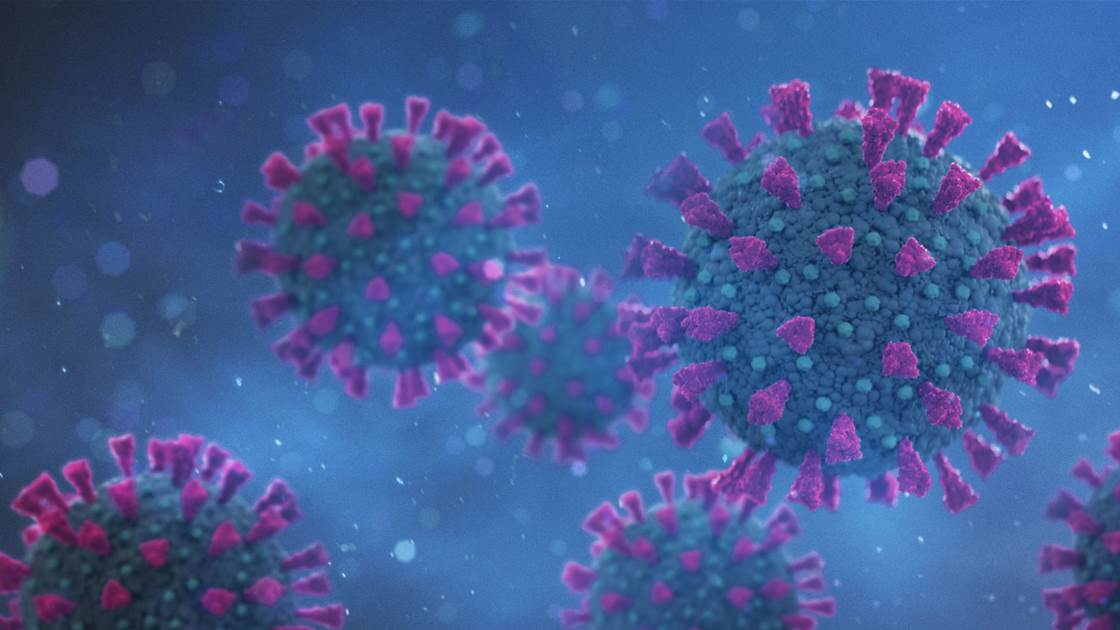The Delta variant has been the driving force behind COVID-19 cases in Australia and many parts of the world for months now. But experts say there’s a dangerous new variant that may actually replace Delta: Omicron.
On Friday, the World Health Organisation (WHO) announced that it had named Omicron as a SARS-CoV-2 “variant of concern” and “very high” global risk, its most serious designation for COVID-19 variants. (SARS-CoV-2, in case you’re not familiar with it, is the virus that causes COVID-19.)
The variant, which was first detected in South Africa, has created a new round of travel restrictions across the world. Australia has currently blocked flights from South Africa and seven other countries, as have the European Union, Canada, Japan, and the US.
“For the world community: The news about this new variant should make clearer than ever why this pandemic will not end until we have global vaccinations.
Other variants have surfaced since Delta took hold, which makes it easy to wonder what it is about Omicron in particular that has world leaders scrambling to try to keep it out of their countries. Here’s what you need to known about Omicron and where things go from here.
What is the Omicron variant?
The Omicron variant, aka B.1.1.529, is a COVID-19 variant that was first flagged to the WHO on Wednesday. The WHO said in a statement on Friday that COVID-19 cases in South Africa have “increased steeply” over the past few weeks “coinciding with the detection of B.1.1.529 variant,” which was first confirmed in the country on November 9th. (It’s important to point out that it’s unclear if Omicron originated in South Africa. Instead, it was just detected there first.)
A lot of research is ongoing to try to learn more about Omicron, but the WHO says it has “a large number of mutations, some of which are concerning.”
The WHO also cites preliminary evidence that suggests there is an increased risk that people can be re-infected with this variant compared to other variants of concern. The number of cases of Omicron also seem to be increasing quickly, with the WHO noting that it’s been detected in nearly every province in South Africa—and the numbers are growing. “This variant has been detected at faster rates than previous surges in infection, suggesting that this variant may have a growth advantage,” the WHO says.
The WHO notes that it’s not currently clear whether Omicron is more easily spread from person to person compared to other variants. However, the global health agency points out that it seems to be spreading quickly. It’s also unclear whether Omicron causes more severe illness than other variants, including Delta. “Preliminary data suggests that there are increasing rates of hospitalisation in South Africa, but this may be due to increasing overall numbers of people becoming infected, rather than a result of specific infection with Omicron,” the WHO says.
Omicron has been detected in Australia, South Africa, Hong Kong, the Netherlands and Canada, according to the Associated Press.
What are the symptoms of the Omicron variant?
According to the WHO, there is no information to suggest that Omicron has symptoms that are different from other COVID-19 strains.” Initial reported infections were among university students—younger individuals who tend to have more mild disease—but understanding the level of severity of the Omicron variant will take days to several weeks, the WHO says.
These are the symptoms of COVID-19 (which would include Omicron):
- Fever or chills
- Cough
- Shortness of breath or difficulty breathing
- Fatigue
- Muscle or body aches
- Headache
- New loss of taste or smell
- Sore throat
- Congestion or runny nose
- Nausea or vomiting
- Diarrhoea
What are public health experts saying about the Omicron variant?
Many are expressing concern but cautioning people not to panic. Dr Francis Collins, director of the National Institutes of Health in the United States, pointed out that there’s still a lot scientists are learning about this variant.
“I do think it’s more contagious when you look at how rapidly it spread through multiple districts in South Africa,” he said. “It has the earmarks therefore of being particularly likely to spread from one person to another. What we don’t know is whether it can compete with Delta.”
Omicron “has a bunch of mutations,” including “a disturbingly large number of mutations in the spike protein, which is the business end of the virus,” said Immunologist Dr Fauci.
Dr Fauci also said that early signs of Omicron “strongly suggest” that it might be more contagious than other variants and may evade protection from the vaccine and monoclonal antibodies.
Infectious disease expert Dr Amesh Adalja, points out that there’s still a lot we don’t know about Omicron. “It’s too early to know what level of threat B.1.1.529 constitutes as there is not enough information—particularly clinical information—about the cases that have been identified,” he says. “The presence of these mutations in a strain merit a lot of investigation to characterise what it may mean for immunity—vaccine and infection-induced—as well as monoclonal antibodies.”
Dr Adalja says that early data “may have biases in it” and it’s important to determine if cases of the Omicron variant increased due to some as-yet-undetected factor or because it’s actually more infectious.
“The reason people are paying attention to this variant is there are concerns that it may possess properties that may be problematic,” says infectious disease expert Dr Thomas Russo. “South Africa, like the rest of the world, is dominated by Delta cases. Omicron could potentially outcompete Delta, which none of the other variants have been able to do.”
What does the Omicron variant mean for vaccines?
It’s not clear at the moment. However, Dr Adalja points this out: “It appears that the hospitalised patients in South Africa [who were infected with Omicron] were largely unvaccinated, arguing vaccines protect against what matters.”
Dr Russo agrees that vaccination is important. “If you are fully vaccinated and you’ve received your booster shot, your degree of protection is extraordinarily high,” he says. “That would provide a buffer, even if this variant is more resistant to vaccination than earlier versions.”
But, Dr Russo points out, "there are still a lot of people unvaccinated and not everyone has gotten that booster. Therefore, there is a concern that an increasing portion of the population might be susceptible.”
Dr Russo says that it’s “unquestionable” that the higher degree of protection from COVID-19 you have “the better off you are with this variant and with others as well.” This, Dr Russo says, “should re-emphasise the importance for the unvaccinated to get vaccinated and those who are eligible to get their booster shots.”






.png&h=193&w=250&c=1&s=1)
.png&h=193&w=250&c=1&s=1)

